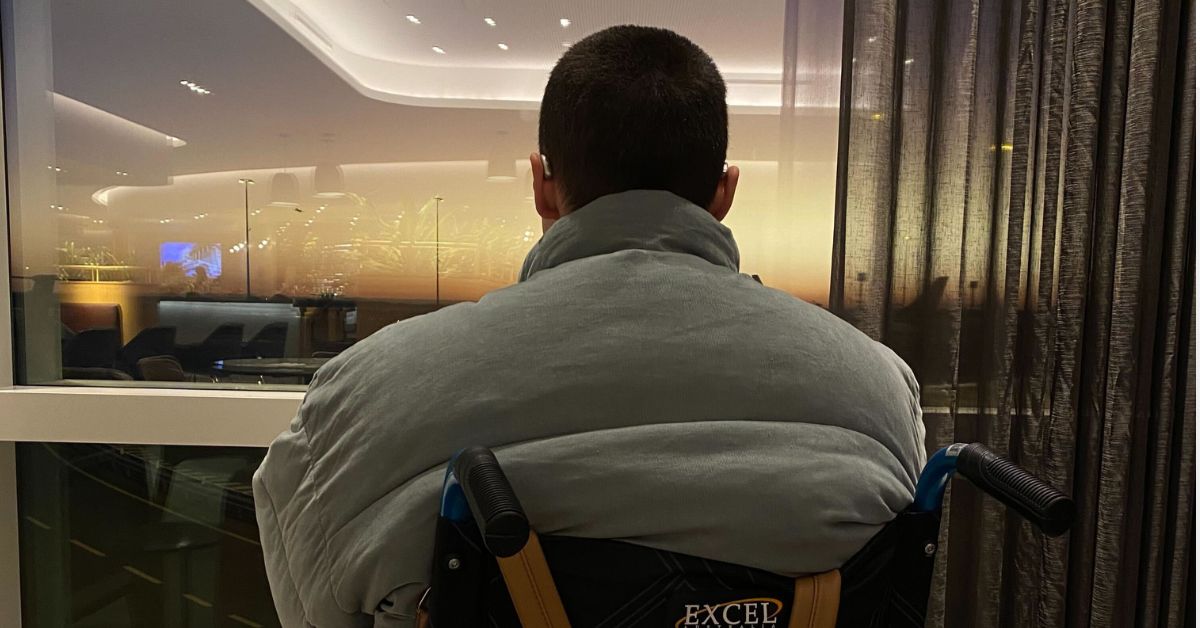Written by Taylor Louise Carlson
When you think about the concept of self-care, something that doesn’t necessarily spring to mind is how significantly different this is for people with a disability, as opposed to those without. It is easy to assume that self-care means the same to all humans. In actual fact, that could not be further from the truth.
Of course, everybody needs down time. We need to ensure we can relax, recharge our batteries and avoid burn-out. This applies to all people, but when you take into account that some of us have additional challenges in our lives, the risk of burn-out is doubled.
As an example – because I am deafblind, I can not do some typical self-care activities that others who aren’t deafblind might do. I can’t go to the movies and see a film, or watch Netflix while curled up on the couch. Going for a long drive, a walk on the beach; neither are possible as they require me to have someone there, which completely defeats the purpose of alone time. These things are taken for granted by people who are not deafblind/disabled. I have to find other ways to carry out self-care, and this is not always easy.
One thing that brings me great joy and allows me to truly switch off, is reading, but the National Disability Insurance Agency (NDIA) are of the belief that funding braille translation of books is not “reasonable” or “necessary”. As a result, my choices for self-care are even more limited; the NDIA does not understand the impact deafblindness has on my ability to access the most basic of things – books.
I am not trying to attract sympathy. I am hoping to give a glimpse of reality. I cannot speak on behalf of other people with disability – we vary considerably in how we cope with self-care barriers – but I’m willing to bet that there will be more negative than positive stories on the subject, due solely to societal influences creating a world that disadvantages people with disability.
I don’t mean to come across as pessimistic, it is just the unfortunate truth. We must endeavour to make the best of a difficult situation, and hope that by educating non-disabled people, we can create change for future generations so that they do not suffer to the same extent.
I love self-care. I will gladly indulge in anything that gives me the happy brain stuff (also known as Serotonin and Dopamine), but my enjoyment of reading uninterrupted for days, or cleaning, or rewatching something I’ve seen a million times before isn’t generally perceived as “self-care”, despite its positive impact.
I hypothesise that this is because my chosen self-care activities don’t fit neatly into society’s designated Self-Care Box. I believe, with the rise of social media, there has become a great disconnect between the concept and perception of “self-care”, and genuine, rewarding self-care. For those who are able, that could be a Venn Diagram with a lot of cross over, but for myself – a disabled person – those two spheres rarely meet.
If I posted to social media that my self-care included washing the dishes I haven’t had the energy to touch, I doubt it would garner the same response as an able person posting about their hike through the Blue Mountains, green smoothie and mud masks (#SelfCare).
I perceive that self-care has shifted into performative territory, and sits alongside toxic positivity – are we doing these activities for our own rest, or for the validation that our actions align with society’s construct of ‘wellness’?
Certainly, this isn’t to shame anyone’s self-care – if that’s what you enjoy, and it’s what refuels you, then go forth and indulge. But I intend to point out the stark difference for a disabled person.
Realistically, that image of outdoor adventures and spa day is the unspoken expectation of self-care. It is an image perpetuated by social media and influencers, that the general population seek to emulate. It is an image that leaves disabled people behind.
Not even simply for the physical demands, but for the time it can take, and the money it costs.
For the disabled community, self-care fluctuates to accommodate our level of ability, our energy, and our resources.
It may be something so simple as taking as making the bed, because you finally have the energy to do so, or perhaps, it’s sitting outside in fresh air for five minutes. Genuinely, it could be anything, but the important thing to note, is that there should never be any element of expectation or comparison, and that’s where the concept of “self-care” falls short.
In every way you can, take the time to care for yourself in whatever way is genuinely relaxing, and joyful for you, without fear of judgement, and without any burden of guilt that it doesn’t meet society’s expectation. You deserve to treat yourself.
Here are some of my favourite (socially unconventional) ways to practise self-care:
- sleep
- make my favourite tea / coffee in the morning
- read
- put my phone on "Do Not Disturb"
- make my bed
- watch a movie


